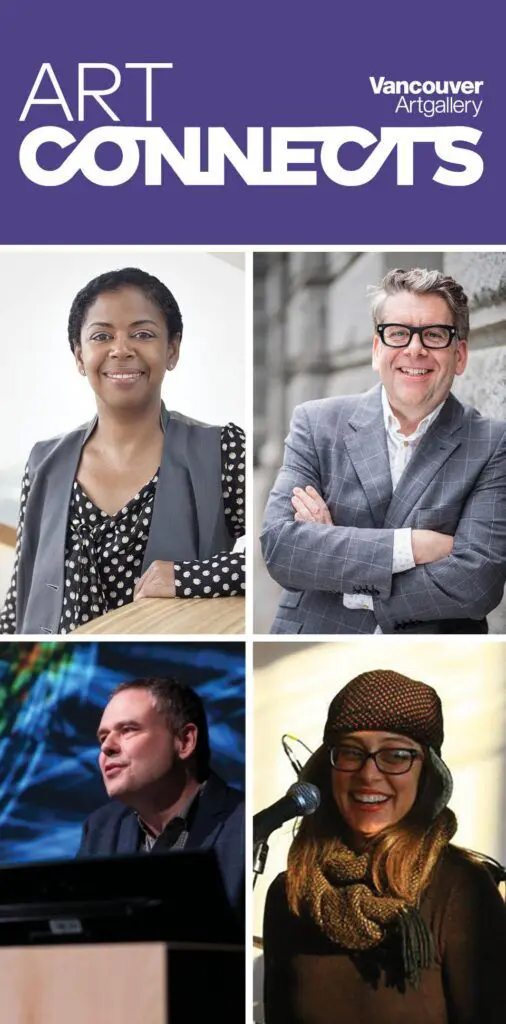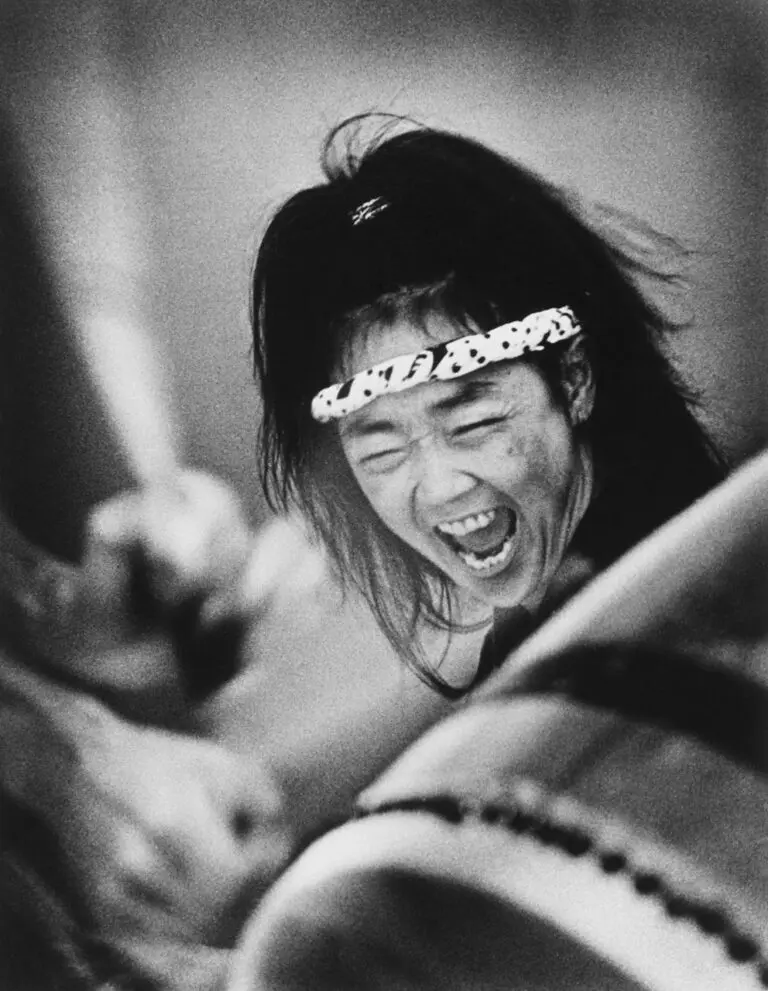Inhabiting Culture: A Conversation Between Art Professionals
Thu Sep 17, 2020 | 1 PM

A Conversation Between Art Professionals
Thursday, September 17 | 1 PM
Stay home. Stay safe. Stay connected with our series of online gatherings, Art Connects!
How does art inhabit public spaces and become “public culture”? This question was at the centre of a conversation held over a decade ago, in 2007, between curators Michelle Jacques, Janna Graham and Anthony Kiendl, entitled “Inhabiting Culture at a Time of Rapid Depublicization.” The discussion explored the possibilities of cultural change in real terms and was later published as part of the thirtieth anniversary issue of FUSE Magazine.
Thirteen years later, in this edition of Art Connects, Jacques, Graham and Kiendl revisit these themes in conversation with Richard Hill, art historian and Canada Research Chair in Indigenous Studies at Emily Carr University of Art and Design. Together, the panel will discuss their shared experiences since that original dialogue, reconsidering topics such as artistic production, dismantling inherited colonial and elitist systems, diversity of work, and destabilizing old paradigms of production and presentations.
We encourage all attendees to read the 2007 FUSE article, “Inhabiting Culture at a Time of Rapid Depublicization,” in advance of this edition of Art Connects as it will inform the conversation. Read it now »
This event will be moderated by Melissa Lee, Director of Public Programs, and Stephanie Bokenfohr, Public Programs Coordinator.
Questions? Submit them during the Zoom presentation using the Q&A function. You can also engage with your fellow attendees and panelists during the event using the Chat function.
New to Zoom? Learn how to register and attend a webinar here »
ABOUT THE SPEAKERS
Janna Graham is a practice-based researcher who has worked in the field of the curatorial for nearly twenty years, occupying long term positions at institutions such as Whitechapel, Serpentine Galleries (London), the Art Gallery of Ontario (Toronto), Nottingham Contemporary (Nottingham) and developing projects for Plymouth Arts Centre, Project Arts Centre (Dublin) Vanabbemusum (Netherlands), the New Museum (New York) and documenta (Kassel) among others. A key figure in what has been termed ‘the educational turn’ in curating, she has developed exhibitions, residencies, research and writing at the intersection of art and contemporary social urgencies including the struggles around migration, gentrification, education, anti-racism and indigeneity. From 2008-13 Graham was initiator and curator of the Centre For Possible Studies, an offsite curatorial programme of Serpentine Galleries that included artistic residencies and research projects in London’s Edgware Road neighbourhood; exhibitions at Serpentine Galleries (On The Edgware Road, 2011; Bidoun Library, 2012; Re-Assembly, 2013); and publications including ‘On the Edgware Road’, (2011) and ’Art + Care: A Future’(2013) and Studies on a Road, (2016).
Richard William Hill is Canada Research Chair in Indigenous Studies at Emily Carr University of Art and Design. Hill taught Art History at York University, beginning in 2007 and leaving as Associate Professor in 2015. As a curator at the Art Gallery of Ontario, he oversaw the museum’s first effort to include Indigenous North American art and ideas in permanent collection galleries. Hill’s essays on art have appeared internationally in numerous books, exhibition catalogues and periodicals.
Michelle Jacques has been living as an uninvited but grateful guest on Lekwungen territory since 2012. She is Chief Curator at the Art Gallery of Greater Victoria (AGGV), where she is responsible for guiding a curatorial and education program that links contemporary practices, ideas and issues to the Gallery’s historical collections and legacies. Since joining the AGGV, she has facilitated projects with contemporary artists Rodney Sayers and Emily Luce; Gwen MacGregor; Hiraki Sawa; Charles Campbell and Farheen HaQ; and Carol Sawyer; co-curated major retrospectives of the work of Anna Banana and Jock Macdonald; and developed a series of installations that use the AGGV’s collection to evoke cross-temporal and cross-cultural conversations. Prior to moving west, she held various roles in the Contemporary and Canadian departments of the Art Gallery of Ontario, Toronto; was the Director of Programming at the Centre for Art Tapes in Halifax; and taught courses in writing, art history and curatorial studies at NSCAD University, University of Toronto, Mississauga, and OCAD University.
Anthony Kiendl (he/him) is the CEO and Director of the Vancouver Art Gallery. Born on Long Island, New York, Kiendl was raised in Winnipeg, Canada, a settler/immigrant (Scottish-English-Dutch-German) who has worked internationally in a wide range of arts environments and institutions—but dedicated most of his life to traversing Treaty lands 1,4,6, and 7—the area also known as Western Canada.
He was Executive Director & CEO of the MacKenzie Art Gallery in Regina from 2014 to 2020; Executive and Artistic Director of Plug In Institute of Contemporary Art (ICA) from 2006 to 2013; Director of Visual Arts at The Banff Centre from 2002 until 2006, and Curator of the Dunlop Art Gallery in Regina, Public Library from 1997 to 2002.
Kiendl has also worked internationally. In 2011 he was appointed curator of Contour: Biennale of the Moving Image in Mechelen, Belgium. In 2007 he was Leverhulme Visiting Research Fellow at Middlesex University, London, UK.
Kiendl studied Studio Arts at Concordia University, Montréal, and Art Criticism and Writing at the School of Visual Arts, New York. He is currently completing a masters degree in Francophone Intercultural Studies at La Cité, University of Regina. He has published and lectured internationally and co-organized panels and conferences for Tate Modern, Tate Britain and Art Brussels, among others. Kiendl has been an invited guest mentor or advisor on leadership in the arts by the Museum Leadership Institute (formerly the Getty Leadership Institute, Los Angeles); Business / Arts (Toronto); and TRG Arts (Colorado Springs).
Kiendl has pursued an inter-textual approach to art that foregrounds the role of the viewer, or visitor, and the relation of artwork to communities, context, place, visual and spatial culture, and architecture. His approach assumes that art is informed by—and informs—its surroundings and is more than a commodity-object. He passionately believes art creates new knowledge and is currency of social, political and philosophical dimensions that contributes to health, justice and quality of life.
Jane Irwin and Ross Hill
